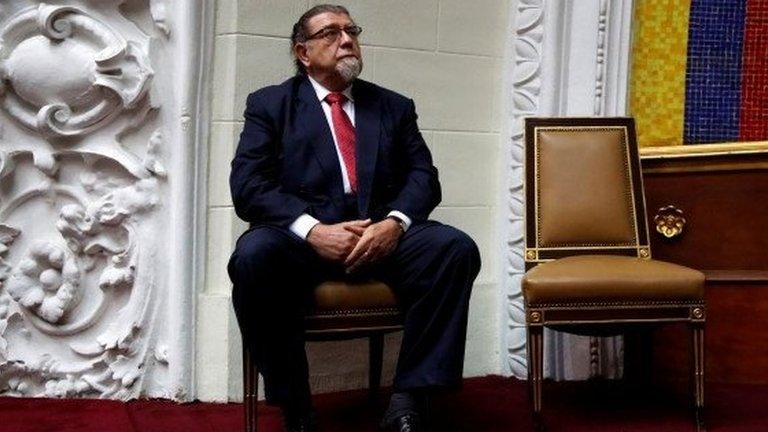Venezuela to expel German ambassador for 'meddling'
- Published
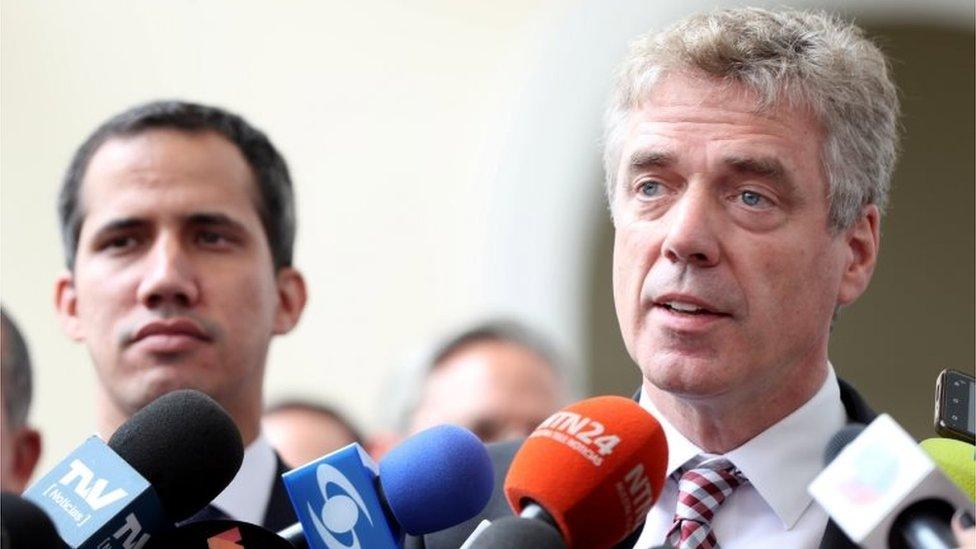
German Ambassador Daniel Kriener (right) was among the diplomats who welcomed Mr Guaidó (left) when he returned
Venezuela has given the German ambassador to the country 48 hours to leave, accusing him of meddling in internal affairs.
Daniel Kriener was among the diplomats who helped opposition leader Juan Guaidó return to Venezuela on Monday.
Germany, which recognises Mr Guaidó as interim president, says the decision will only escalate tensions.
Meanwhile, the US says it is revoking the visas of 77 more people linked to President Nicolás Maduro.
They include government officials and their families, Vice-President Mike Pence said. On Friday, 49 other people had their visas revoked as part of the US pressure on Mr Maduro to resign.
Mr Maduro has accused Mr Guaidó of trying to mount a coup against him with the help of "US imperialists". Rallies for and against the government are due to be held on Saturday.
In a separate development, Venezuela arrested American journalist Cody Weddle and his Venezuelan assistant on Wednesday morning.
The reporter, who works for several US outlets, was released later in the day and is being deported.
Several local and foreign journalists have been briefly detained while working in Caracas in recent weeks. Some have since been deported.
'Persona non grata'
On Wednesday, a statement by the Venezuelan government declared Mr Kriener "persona non grata" and accused him of "recurrent acts of interference in internal affairs".
Mr Guaidó had defied a travel ban and was widely expected to be arrested.
But when he flew into Simón Bolivar airport in Caracas, he was let through immigration and welcomed by a group of diplomats, including Mr Kriener, who escorted him out of the building.
Diplomats from Argentina, Brazil, Canada, Chile, Ecuador, France, the Netherlands, Portugal, Romania, Spain and the US were at airport to receive Mr Guaidó - but so far only Mr Kriener has been targeted over this incident.
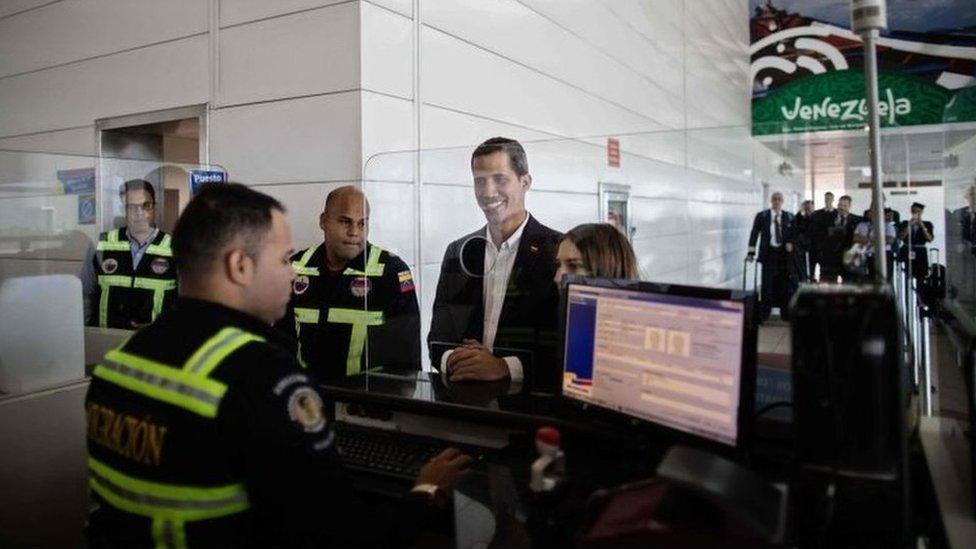
Mr Guaidó says he received a friendly welcome at immigration
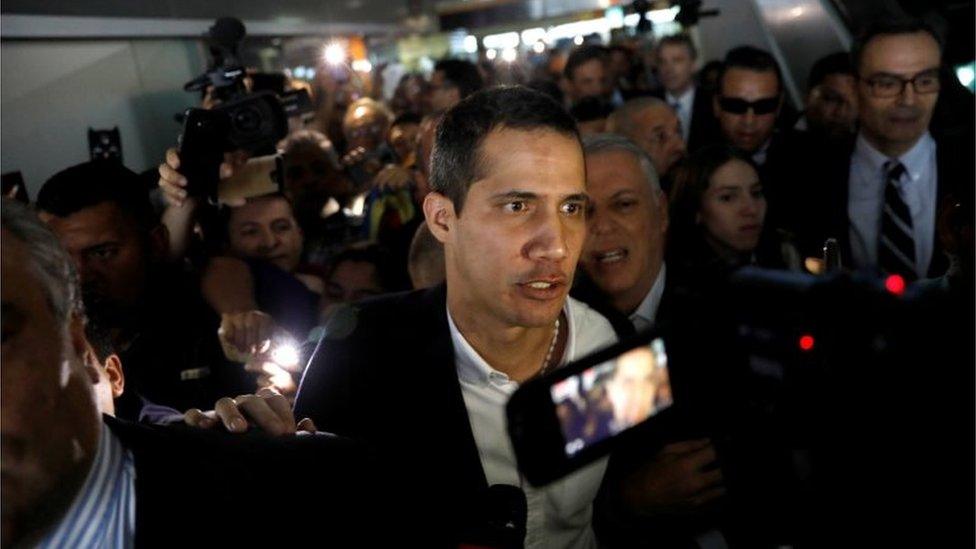
Diplomats flanked him as he left the airport building
Earlier, officials from the US, the EU and a number of Latin American countries had warned the Venezuelan government not to arrest or harm Mr Guaidó.
Before Mr Guaidó's arrival, Mr Kriener had said he and other diplomats wanted "to help and support a safe return" for the opposition leader.
The German embassy in Caracas later tweeted (in Spanish), external: "Juan Guaidó's return to Venezuela is a step towards a political and peaceful process to overcome the Venezuelan crisis."
Venezuela's foreign ministry said that it would not accept a foreign diplomat acting "in clear alignment with the conspiracy agenda of extremist sectors of the Venezuelan opposition".
Venezuela has in the past two years expelled the US top diplomat as well as those from Brazil and Canada.
What's the background to the crisis?
The Maduro government is becoming increasingly isolated as more and more countries blame it for the economic crisis which is crippling the oil-rich country and which has prompted more than three million people to leave Venezuela.
Mr Guaidó, who leads the opposition-controlled National Assembly, declared himself interim president on 23 January and has been at loggerheads with President Maduro ever since.
He has been recognised as interim president by more than 50 countries but Mr Maduro retains the support of his close allies Russia, Cuba and China among others.
- Published22 May 2018
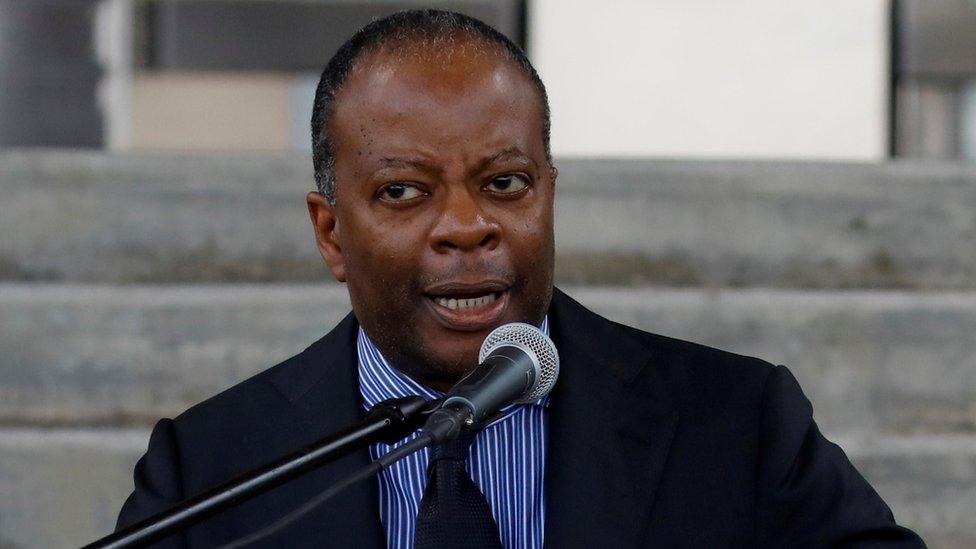
- Published24 December 2017
